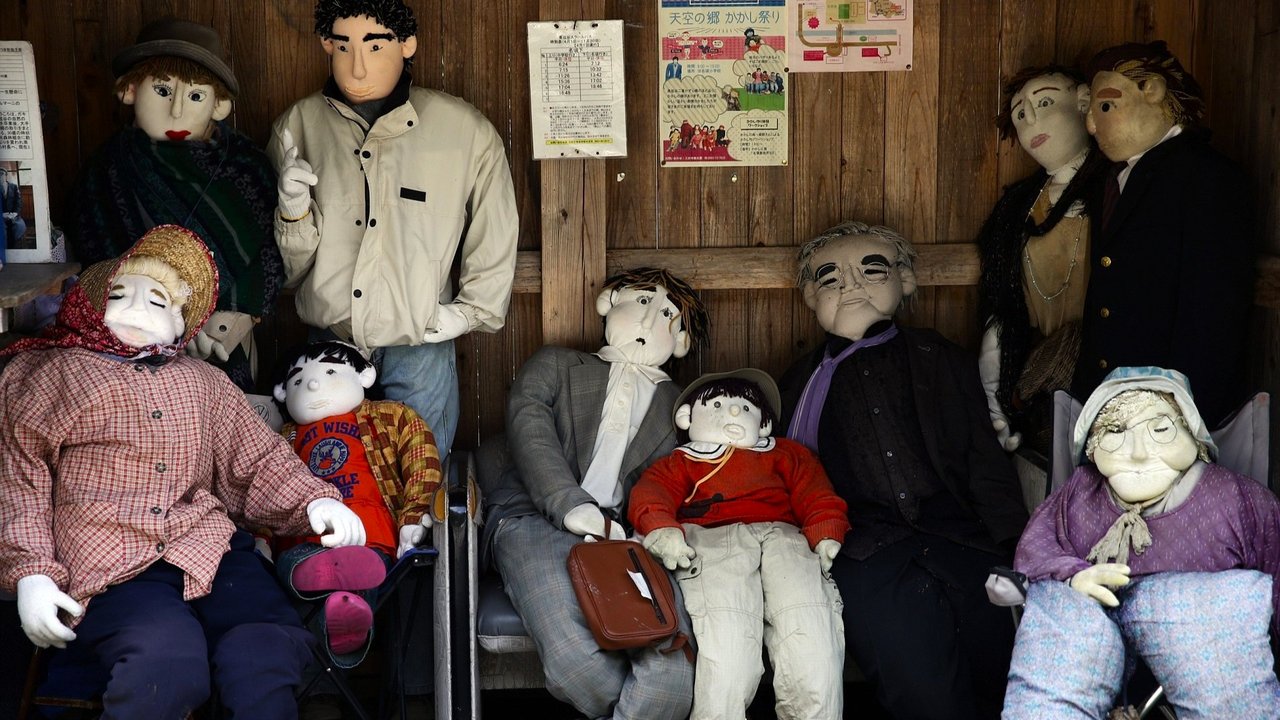
The Battle of Bun’ei. Chapter Four
The village hall, a structure that looked as if it had been designed by a committee of drunken carpenters and then abandoned halfway through, was packed to the rafters with the entire population of Bun’ei — forty-seven souls, not counting the mayor’s mistress, who was technically present in spirit, having sent a small barrel of pickled radish in her stead.
Mayor Katsuhiro stood at the front, his belly straining against his sash, his face set in the expression of a man who had just discovered a new and particularly virulent strain of bureaucracy. Beside him, Ayumi Sato — Miss Tokyo herself — stood with the poise of a woman who had once attended meetings where people wore shoes and didn’t smell faintly of pickled vegetables.
“My dear friends, my noble villagers!” he boomed, his voice echoing off the peeling plaster. “We gather today on the cusp of an unprecedented opportunity! A chance for Higashikuma to shine, to rise like the glorious phoenix from its own perpetual ashes!”
He paused for dramatic effect, but only received a collective sniffle.
“This year, our humble village will host a truly historic event! Rich tourists from Saudi Arabia — yes, Saudi Arabia! — will be flying in by helicopter to witness our glorious national holiday, the Battle of Bun’ei!” the mayor bellowed, waving his arms with the enthusiasm of a man auctioning off a haunted house.
A murmur ran through the crowd, equal parts confusion and suspicion. Old Mrs. Nakamura, who had not left her house since the Kakuei Tanaka administration, squinted at the mayor as if he were a particularly untrustworthy turnip. “Why would Saudis come here in the middle of winter? Don’t they have deserts and camels and all that?”
The mayor pressed on, undeterred. “They want to see real samurai spirit! They want to witness our proud tradition! That’s why I have arranged for samurai costumes, swords, army tents with heating — yes, heating! — to be brought from the city. Musicians will come, banners will fly, and all you have to do is put on the costumes and act out the great battle of samurai versus Mongols on the lake!”
A hand shot up from the back. “And why us? We’re farmers, not actors! Why didn’t you bring real actors with real costumes? We’ll look like clowns, Mayor! Costumed fools!”
Katsuhiro’s smile wavered only slightly. “Clowns?! Because, my friends, only you can show the true samurai pride of Bun’ei! Actors from Tokyo. Here, we have authenticity! And after the battle, there will be a grand holiday with music, snacks, and” — he paused for effect, — “and free drinks!”
The villagers exchanged glances. Authenticity was all well and good, but most of them had trouble acting out their own birthdays, let alone a historical battle. Still, the mention of free drinks had a noticeable effect.
“And now,” the mayor continued, “the most important part! After the battle, we will all swim in our icy lake. This is real samurai valor! The Saudis will be amazed!”
A stunned silence fell. Then, as one, the villagers recoiled.
“Swim in the lake? In this weather? Mayor, you go jump in the lake yourself!” shouted Mr. Sato, who had not voluntarily bathed since the last typhoon.
“My grandmother died from a cold bath! It wasn’t good, it was hypothermia!” Wailed a woman, brandishing a trembling fist.
The mayor raised his hands in a gesture of peace, or possibly surrender. “Wait, wait! In exchange, I promise a feast! Roast duck, pork, stewed sauerkraut, and as much sake and whiskey as you can drink!”
This, at last, was a language the villagers understood. The mood shifted palpably.
“Well, if there’s pork and stewed sauerkraut, I’ll dive in,” grumbled old Nakamura, eyeing the mayor as if daring him to renege.
“With whiskey and sake, the sea is knee-deep for me — I’ll swim!” declared Mr. Yamada, who had once tried to row to Hokkaido after three bottles of plum wine.
“OK,” grumbled the woman who’d cursed her grandmother’s bath, her gaze fixed on a distant, imaginary pig, “if there’s proper pork, and plenty of that stewed sauerkraut to warm the belly, I suppose… I’ll dive in. Just for the pork.”
Ayumi, watching from the sidelines, wondered if this was what her mother had meant by “broadening your horizons.” She made a mental note to order extra towels and a defibrillator.
The mayor, sensing victory, beamed. “That’s the spirit! Bun’ei will show the world what true samurai are made of — mostly pork, cabbage, and alcohol!”
And as the villagers shuffled out, already arguing over who would get the first slice of duck, the mayor allowed himself a rare moment of optimism. What could possibly go wrong?